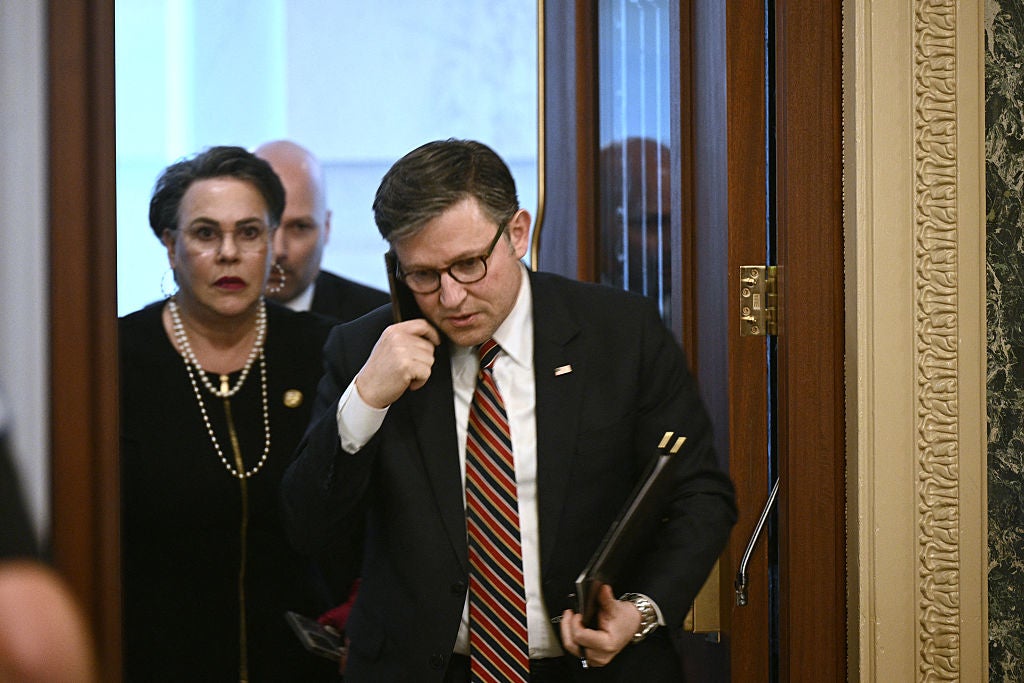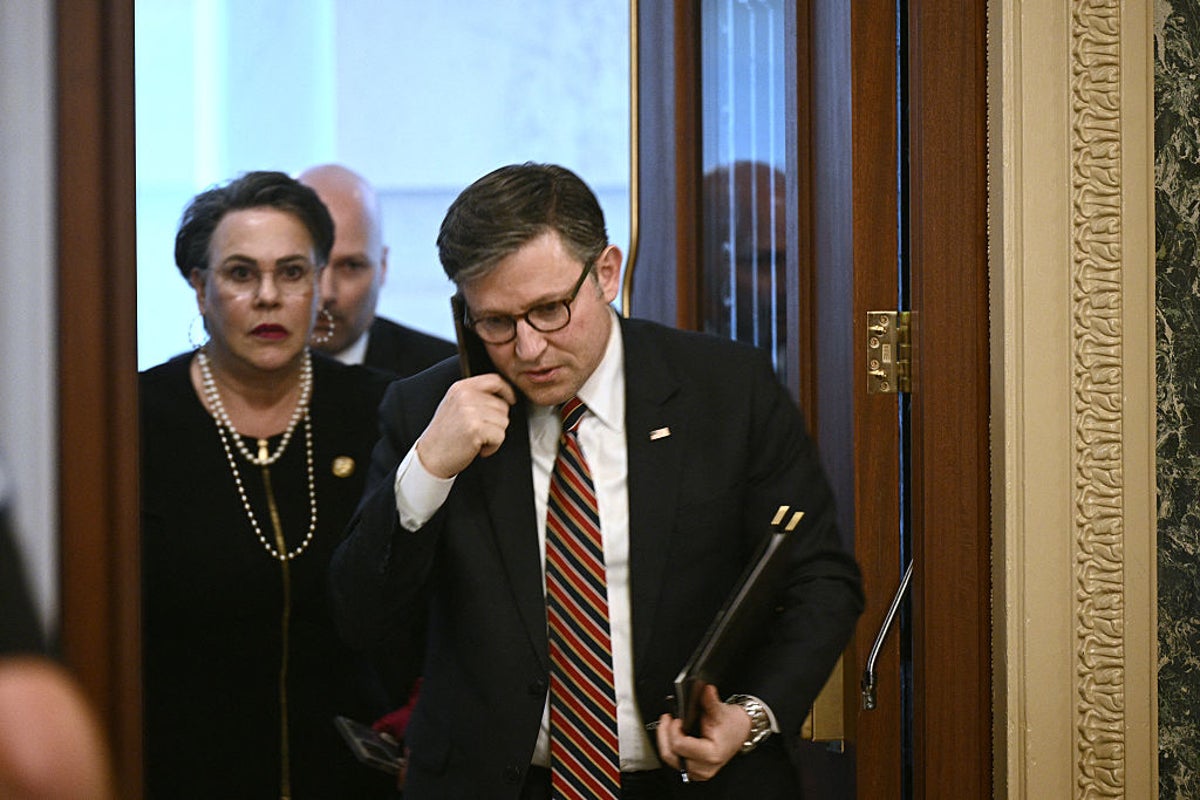Mike Johnson is calling another vote with the numbers seemingly against him. He’s betting the holdouts in his caucus will fold — again.
The Republican speaker of the House set up votes Wednesday on a budget resolution authored by his peers in the Senate as the GOP moves on to the next step of the reconciliation process. But Johnson, who can suffer just three defections among his caucus for the vote to succeed, is still facing (according to various reporting) more than a dozen likely or potential “no” votes from Republicans if the vote goes ahead.
A rule vote, the first hurdle for the legislation, passed Wednesday afternoon with the thinnest of margins, 216-215.
The outcome of the final vote will likely be decided by how much pressure the White House can put on House Republicans. President Donald Trump has repeatedly urged House lawmakers to vote for the budget resolution in Truth Social postings and again Wednesday during an event with NASCAR drivers at the White House.
“Mike Johnson is a great speaker. He’s done a fantastic job,” Trump told reporters on the White House lawn.
.jpg)
“We had a majority of one; now we have a majority of seven. And you don’t realize how big seven is until you’ve had a majority of one,” he said, chuckling. “We got a bill passed the other day with almost unanimous support [from Republicans] in the Senate. And I think we’re going to get that in the House, too.”
House lawmakers took a rule vote mid-Wednesday afternoon, ahead of final consideration of the resolution later in the day. A number of lawmakers in various factions of the GOP caucus appeared ready to vote for the rule, before voting “no” on the resolution’s passage. There were still three Republican defections on the rule itself: Rep. Thomas Massie (R-Ky.), Rep. Victoria Spartz (R-Ind.), and Rep. Mike Turner (R-Ohio).
The holdouts include both vulnerable House Republicans in frontline districts who fear the political retribution that would follow cuts to Medicaid benefits and hardline conservatives who say the plan does not do enough to address the federal budget deficit.
Wednesday’s vote on the Senate plan represents a significant departure from the House budget framework previously passed by the chamber in February. The Senate plan calls for just $4bn in spending cuts as a floor for the final resolution, though it allows for actual targets to be much higher. The House budge framework passed in February included targets for more than $1.5tn in spending cuts, which most nonpartisan experts said would need to include cuts to Medicaid.

“There’s a clear understanding between many of us and the speaker,” Rep. Nicole Malliotakis of New York told Punchbowl News. “We will not vote for something that takes away eligibility from our constituents, period.”
Still, Johnson was predicting confidence around mid-day: “I think it is going to pass today.”
The speaker is prone to taking risky votes in his chamber — even if they fail.
Republicans suspended business in the House just last week after a group of rebel members tanked a rule vote over Rep Anna Paulina Luna’s bid to allow proxy voting for new mothers. Johnson also brought a bill to avert a government shutdown to the floor last September only to see it fail over a provision that would have implemented voter ID requirements ahead of the presidential election.
But in some cases Johnson has also shown an ability to wrangle both the center-right and strict conservative wings of his caucus — including a handful of frequent malcontents — to get key pieces of legislation through the chamber. Republicans who voted him into office in 2023 did so after ousting his predecessor, Kevin McCarthy, and then spending days searching for a new speaker. Johnson then swept away challenges to his re-election as speaker at the end of 2024.




